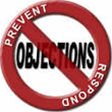 ≡
≡
Stopped Dead In My Tracks
Sep 7, 2023 by Sean Luce When I conduct seminars, I rarely get stopped dead in my tracks by an audience member. It happened recently while I was doing a seminar for the Missouri Broadcasters Association. I had an electric group in attendance, and they kept me on my toes while we were role playing on how to ask questions during a sales call.
When I conduct seminars, I rarely get stopped dead in my tracks by an audience member. It happened recently while I was doing a seminar for the Missouri Broadcasters Association. I had an electric group in attendance, and they kept me on my toes while we were role playing on how to ask questions during a sales call.
Asking open- and closed-ended questions should come easily in a sales call if a rep knows what that means. Open-ended questions are any questions that can't be answered with a yes or a no. Closed-ended questions can only be answered with a yes or a no. Closed-ended questions guide and lead a rep in the selling process.
When a rep is completing a customer needs analysis or a customer marketing profile (CMP), the guideline is to use open-ended questions for three out of every four questions asked. The goal is to have the prospect "open up," so to speak. Starting the questions with the words what, when, where, why, who, or how will help the prospect better share their needs and concerns.
One way that I try to illustrate the open-ended versus the closed-ended questions in my seminars is to role play with the audience. I am the prospect and they are the sales reps. At the Missouri seminar, I was a furniture store owner with three locations in a mid-major city. The audience of sales reps then asked me questions that they would typically ask a customer on a needs analysis call. For example:
How long have you been in business?
Paint a picture of a person that shops in your store.
Who do you think your competition is?
There were a few closed-ended questions, such as:
Was your last promotion a success?
Can your salespeople close?
Did you exceed your sales goal last month?
I keep a tally of these questions by drawing a large square on a flipchart. I divide the square into four quadrants. At the top of each quadrant, I write the letters "I" for Information and "P" for Problem. On the side of the page for each quadrant, I write the letters "O" and "C." The audience can't make out the letters O and C. They are for my eyes only. I normally have the audience ask about 35 to 50 questions and most of the marks go in the O Box for Open-ended and the I Box for Information-based questions.
As I am doing the live role play in my seminars, very rarely do I ever have the truly problem-related questions come up. Asking the information-based questions is easier. Sales reps often fail to flush out the prospect's real problems and challenges. Having the problem related information is what could lead the client to advertising with the rep's media company. After all, the rep is trying to qualify them for advertising, right?
A very smart rep from Columbia, Missouri, stopped me dead in my tracks after about 20 information-based questions. The rep didn't understand why we weren't asking more questions that would lead to the customer's real problems. Voila! That was the point! What typically happens on a sales call is that a rep asks the easy questions to build rapport and trust. Don't get me wrong, the easy questions must be asked, but reps are often afraid to ask the tough questions, too.
Asking questions is an art, and one that needs to be practiced over and over again. Here is a good question to ask for transitioning from information-based questions to problem-related questions. Say to a client, "On a scale of 1-10, and there is no perfect 10, how would you rate your advertising effectiveness?" The prospect will almost always say a 7. The follow-up question is, "Why not an 8 or a 9?" Now the rep has permission to ask tougher questions to uncover the client's problems.
Well done, "very smart" Columbia sales rep! I'm not stopped in my tracks very often! One question we do not ask enough is, "How is your current advertising working for you?" The client could say, "Great!" That question will back the rep into a corner, and they will have to start all over again. Remember this rule of thumb: Never ask a closed-ended question unless you know the answer.
Sean Luce is the Head International Instructor for the Luce Performance Group and can be reached at sean@luceperformancegroup.com or www.luceperformancegroup.com
Related Categories




